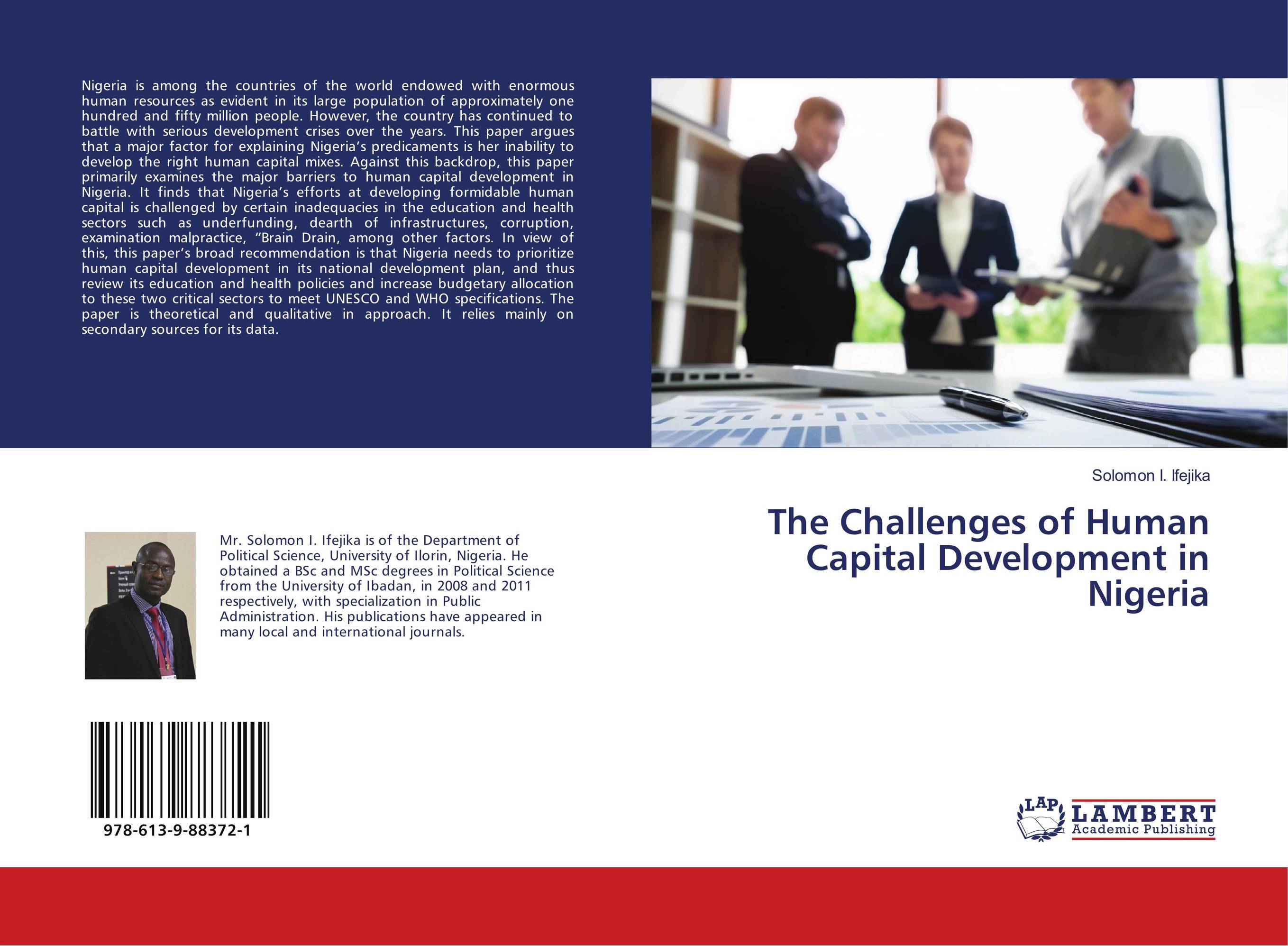| Поиск по каталогу |
|
(строгое соответствие)
|
- Профессиональная
- Научно-популярная
- Художественная
- Публицистика
- Детская
- Искусство
- Хобби, семья, дом
- Спорт
- Путеводители
- Блокноты, тетради, открытки
The Challenges of Human Capital Development in Nigeria.

В наличии
| Местонахождение: Алматы | Состояние экземпляра: новый |

Бумажная
версия
версия
Автор: Solomon I. Ifejika
ISBN: 9786139883721
Год издания: 2018
Формат книги: 60×90/16 (145×215 мм)
Количество страниц: 56
Издательство: LAP LAMBERT Academic Publishing
Цена: 24840 тг
Положить в корзину
| Способы доставки в город Алматы * комплектация (срок до отгрузки) не более 2 рабочих дней |
| Самовывоз из города Алматы (пункты самовывоза партнёра CDEK) |
| Курьерская доставка CDEK из города Москва |
| Доставка Почтой России из города Москва |
Аннотация: Nigeria is among the countries of the world endowed with enormous human resources as evident in its large population of approximately one hundred and fifty million people. However, the country has continued to battle with serious development crises over the years. This paper argues that a major factor for explaining Nigeria’s predicaments is her inability to develop the right human capital mixes. Against this backdrop, this paper primarily examines the major barriers to human capital development in Nigeria. It finds that Nigeria’s efforts at developing formidable human capital is challenged by certain inadequacies in the education and health sectors such as underfunding, dearth of infrastructures, corruption, examination malpractice, “Brain Drain, among other factors. In view of this, this paper’s broad recommendation is that Nigeria needs to prioritize human capital development in its national development plan, and thus review its education and health policies and increase budgetary allocation to these two critical sectors to meet UNESCO and WHO specifications. The paper is theoretical and qualitative in approach. It relies mainly on secondary sources for its data.
Ключевые слова: human capital, Human capital development, human resources, Socio-Economic Growth and Development, Nigeria



